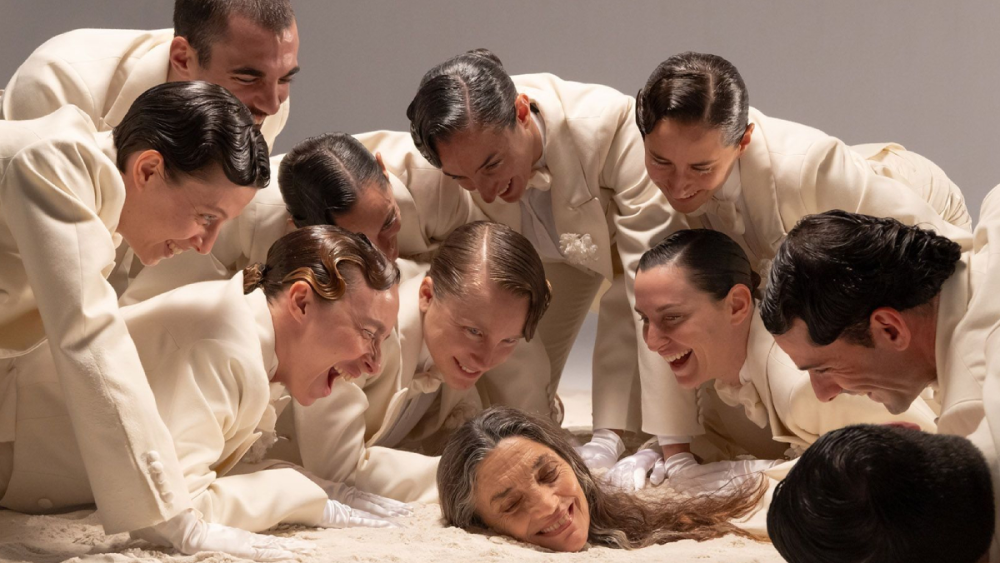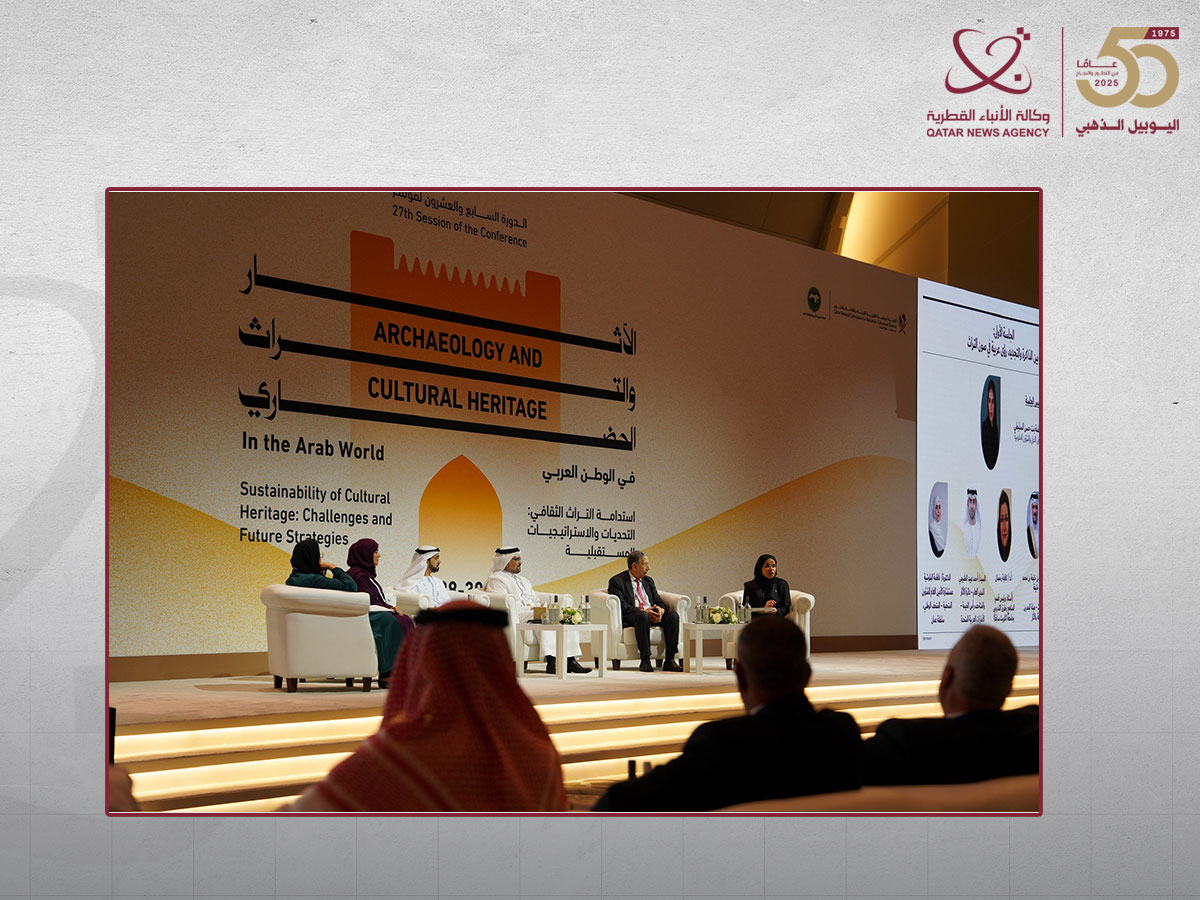Copyright Variety

Set to open Nov. 7 with the daring musical “They Will Be Dust” by Carlos Marqués -Marcet, the A-listed Tallinn Black Nights Film Festival (aka PÖFF) will get an extra kick to its fierce spirit of independence and revolt from its first Focus on Catalonia, one of the highlights of this 29th edition. Under the aegis of PÖFF’s own Pasionaria-festival honcho Tiina Lokk and her 20 programmers, this year’s expanded program consists of 252 feature films and 275 short films from 79 countries, 111 world and 31 international premieres. Among the buzziest titles bowing in the official competition are “Versailles” by Mexico’s Andrés Clariond (“Hilda”), “The Moon is a Father of Mine” by Crystal Globe winner George Ovashvili, “Think of England” by BAFTA-nominated Richard Hawkins, “The Frog and the Water” by Golden Bear-nominated Thomas Stuber and “The Muralist” by PÖFF 2024 Grand Prize winner Sengedorj Janchivdorj. The public-facing event will delight its audience with starry names including James McAvoy, in Tallinn with his directorial debut “California Schemin,” Iranian-French Golshifteh Farahani, cast in the Critics’ Pick entry “Oh’ What Happy Days,” and Cannes-selected helmer Sergei Loznitsa with “Two Prosecutors.” Other highlights include a bolstered Baltic competition program, a “Yellow-Blue Butterfly” tribute to Ukrainian children, a Lifetime Achievement accolade to legendary Lithuanian actor Juonas Budraitis, and an Honorary Award to Austrian helmer Jessica Hausner. More than 1,700 accredited guests from over 50 countries will fill the festival’s headquarters at the Nordic Hotel Forum, cornering the picturesque Unesco World Heritage Tallinn Old Town. Below, Lokk unlocks her festival’s program and challenges to Variety. Catalonia’s fierce creativity and spirit of independence will run through the veins of PÖFF 2025, as you’ve invited 70 participants from Catalonia and more than 30 films, including the opener “There Will Be Dust.” How did this collaboration come about? Tiina Lokk: Firstly, I love Spanish cinema and our audience usually enjoys anything coming from Spain. Secondly, Catalonia has a very strong culture and regional identity, and as strangely as it might sound, the small country of Estonia also shares distinctive regionalism. But I must say I was astonished to discover the extraordinarily rich and varied Catalan film culture and genres. Being a passionate person, with my team, we picked as many films as we could for the Focus and sprinkled them across the festival’s sections – from classics, competition, experimental, midnight, documentaries and kids and youth, on top of TV series. The Catalan industry as a whole is immensely creative, active in co-productions and they get a lot of financial support from the region and local broadcasters. I almost wish I could live in Catalonia and stage my festival there! You’re also staging a Spotlight on Austria and welcoming Jessica Hausner for a masterclass at the Discovery Campus. Is it a premiere as well for PÖFF? Lokk: Yes it’s the first time we have such a larger delegation from Austria [around 20 people] and we’ll screen around seven-eight films instead of the usual two or three. Jessica is one of the most interesting and outstanding Austrian filmmakers besides Michael Haneke. She doesn’t shy away from tackling very painful topics that other female directors don’t want to discuss so openly – the weight of social, moral norms – which is why we’ve invited her. She will receive an Honorary Award during the closing ceremony. Having received 1,900 submissions for your main program, plus 433 kids and youth films and over 5,600 shorts, what’s your take of the state of global filmmaking? Lokk: I guess there is still a slight post-COVID effect on filmmaking, and we can see that the level of production has dropped in Europe due to budget cuts, but we do have more or less the same number of films for the main program. In geographical terms, our strongest entries come from Spanish-speaking countries, South America, Asia, Central Asia and Europe. But to be fair, it always depends what titles are available for our festival slot and what other festivals pick up. How was your selection process this year? Despite your November slot that you’ve often described as “tricky,” you have selected an impressive 111 world premieres and 31 international premieres…. Lokk: I think that over the past decade, we have developed from strength to strength with our festival, industry, educational strand Discovery Campus and carved ourselves a niche on the festival circuit. That said, I am realistic. Cannes, Venice, Berlin will always attract the bigger A-list stars because our market remains very small and we have a restricted budget. Also, flight connections to Tallinn remain problematic. I often say – with my black humor – that we do snatch big names from the destinations with a direct flight to Tallinn. You have a larger than usual number of British films in the main program: “Think of England” in the official selection, James McAvoy coming with “California Schemin” and “Lady’ competing here after a successful launch in London… Lokk: Many British and Irish films prefer to have a London Film Festival launch as London is a gateway to the American market. I totally understand that. But we do get more submissions from producers and sales agents who know our taste for artistically-driven, edgy, even quirky films. One key criterion though for me is to select films that I know will strike the right chord with our audience, that is well-educated, always fill our cinemas and actively take part in Q&As. We take great care of our audience. For the first time you have two distinct competition strands for Baltic fiction films and Baltic documentaries. Why this move? Lokk: Baltic feature films have upped their artistic level and enjoyed a boom in recent years, and it was clear that we needed to back this trend. We felt that quality documentaries from the region perhaps don’t get such a good entry-ticket on the international festival circuit and wanted to give them that extra well-deserved media and audience attention that you get from a competition slot. Although IDFA takes place at the same time, there are enough quality Baltic docs to screen at both festivals. Last year you had three Baltic films in official selection but none this year. Any comment on this and on the state of Estonian cinema? Lokk: Every small film country has some weaker years than others. Estonian fiction films have been lagging behind quality-wise, and that’s been going on for a while. This is due to the lack of funding for film. Also, filming here is becoming too expensive, due to the higher prices and inflation compared to Latvia and Lithuania, that are attracting even Estonian filmmakers. That said, positive signs are coming from north-eastern Estonia, with the Ida-Viru creative and technological hub and the Jõhvi studio complex set to open already in 2026. That will boost our facilities, industry skills and hopefully bring in a new breeze to the Estonian film industry. Can you say a few words about the Lifetime Achievement to Lithuanian actor Juozas Budraitis, often called the ’James Dean’ of the Baltics? Lokk: Somehow, this is connected to my past. When I entered the film industry in Estonia in the early 1980s, I noticed that many excellent filmmakers and actors who had played a big role in the development of cinema at the time, could never be noticed or recognised because of the political situation. Juozas was one of them. Though once invited to appear in a film by Michelangelo Antonioni, travel restrictions of the era kept him from taking up the role. Decades later, he made a memorable appearance in Netflix’s “The Queen’s Gambit” – a quiet reminder of an artist whose presence transcends time and circumstance. How have the on-going conflicts – Ukraine at your doorstep, and between Israel and Palestine – impacted your selection process this year? Last year you encountered serious backlash with the Russian film “Deaf Lovers”…. Lokk: It’s never easy. I’m always in the middle of conflicts and even now, before festival kick off, I have to solve some sensitive issues. But that’s a normal part of life right now. However, I firmly stick to my principles of independence and artistic freedom and always try to make balanced choices. This year, I do have films both from Israel and Palestine, and with Ukraine, we have another huge collaboration. We will stage an event called Yellow-Blue Butterfly to support Ukrainian children impacted by war. Ukraine knows about the value of culture as soft power and spends a lot of money explaining to the world what’s going on in their country. I wish our government would also see the importance of culture and stop making cuts. Could you tell us about PÖFF’s first-ever fundraising campaign -– The Wolf Pack – to find alternative ways to raise financing for the festival? Lokk: We are not the first– and not the last – festival to use a fundraising campaign. Toronto is one of the biggest to do this, and so do many festivals in the U.S. We have big problems and I’m not talking about developing our activities, but simply surviving. As I said earlier, living costs are rising, but we don’t want to increase our tickets. The Wolf Pack is a way to connect our festival with everyone involved and external benefactors and allow them to contribute financially to PÖFF’s sustainability and success. As a former academic, you’ve integrated education into PÖFF, with the wide-ranging Discovery Campus program to be attended by 40 emerging professionals and talents. You must be pleased that big names such as costume designer Debra McGuire, composers Miriam Cutler, Atli Örvarsson and Jessica Hausner will share their knowledge with the next generation of film and TV talents? Lokk: The educational segment of our festival is essential as we collaborate with film schools and educational networks internationally. We try to combine the needs of our industry on a local, regional and international level. Again, the Baltics are small production hubs, therefore, it’s key to boost talents and networking opportunities for local technicians and filmmakers. Next year we would like to develop our educational program, widen the collaborations with film schools to make it even more focused and beneficial for everyone. This interview has been edited and condensed for clarity



